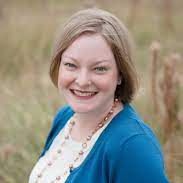
Are you ready to make a plan to include all families in your church? Here are three steps to start a special needs ministry.
By Sandra Peoples
In Acts 6, the church was growing, but one group was feeling neglected—the Hellenistic widows. The apostles weren’t neglecting them with malicious intent. They were simply so busy with the growth of the church they didn’t notice. When the Hellenistic Jews brought the issue to the apostles’ attention, they appointed men to meet the need. “So the word of God spread [and] the disciples in Jerusalem increased greatly in number” (Acts 6:7, CSB).
Families impacted by disability often feel like these neglected Hellenistic widows. We want to fully participate in church life, but barriers to our inclusion keep us from doing so. Sadly, some churches have done this on purpose, telling special needs families they aren’t welcome. But like the apostles and the Hellenistic widows, most church leaders are simply unaware of the needs of special needs families.
Families impacted by disability often feel like these neglected Hellenistic widows. We want to fully participate in church life, but barriers to our inclusion keep us from doing so. — @SandraPeoples Click To TweetOne reason for the neglect is that pastors are unaware of the number of special needs families in their communities and may not fully understand factors that keep them from being able to attend church. According to the last census, 1 in 5 families in the U.S. has a member with a disability. That’s 20% of the population. If you look around your church and don’t see that number reflected, you, like the apostles in Acts, may be ready to make a plan to meet the need now that God has opened your eyes to it.
Here are three steps to start a special needs ministry in your church and work toward inclusion for all families:
1. Form a theology of disability based on Scripture
The Bible has lots to say about disabilities and God’s purpose through them. Consider the following passages:
Psalm 139—We are all fearfully and wonderfully made.
Exodus 4:11—God allows disabilities for His purpose.
John 9—Jesus said disabilities exist “so that God’s works might be displayed” (John 9:3, CSB).
1 in 5 families in the U.S. has a member with a disability. Click To TweetFor many, it just hasn’t occurred to them to form a theology of disability. It hasn’t impacted them personally, so they’ve focused on all the other issues they face and experience. To continue to learn more, pastors can meet with families and ask what God has taught them through their special needs journey. Pastors can reflect on their experiences with people with disabilities and ask God to remind them that every person they meet reflects the Creator and is made with a purpose—to glorify Him.
2. Understand people with disabilities are a vital part of the body of Christ
In 1 Corinthians 12, Paul teaches us the church is made of many parts. Some of those parts are weaker than others but are still worthy of honor. “Instead, God has put the body together, giving greater honor to the less honorable, so that there would be no division in the body, but that the members would have the same concern for each other. So if one member suffers, all the members suffer with it; if one member is honored, all the members rejoice with it” (1 Corinthians 12:24-26, CSB).
Truly inclusive churches not only serve people with disabilities but also give them opportunities to serve the church body with their gifts. — @SandraPeoples Click To TweetThis isn’t to imply people with disabilities are “less than” people without disabilities. But speaking from my experience of having a sister with Down syndrome and a son with level three autism, many have limitations that keep them from doing some things in the church—but not everything. Truly inclusive churches not only serve people with disabilities but also give them opportunities to serve the church body with their gifts.
3. Pray for people to step up and serve who already have the calling and skills to work with people with disabilities
As we read in 1 Corinthians 12, a church is made of many parts. I truly believe God has already placed people in our churches who can meet the needs of the church members He calls there. Adults with disabilities should guide and lead the ministry when possible. Others with experience as family members, teachers, or therapists may offer their skills. And those who have a passion for the ministry can be trained to provide support and encouragement.
Every family deserves to have access to the gospel and a church home. — @SandraPeoples Click To TweetThese three steps—building a theology of disability, realizing the importance of inclusion, and being able to meet needs to support inclusion—will help you lay the proper foundation for a thriving special needs ministry that will bless the families in your church and can bless your entire community. Every family deserves to have access to the gospel and a church home.

Sandra Peoples
Sandra (M Div, PhD student) is the disability ministry consultant for the Southern Baptists of Texas Convention, an adjunct instructor for Liberty University, and the author of Unexpected Blessings: The Joys and Possibilities of Life in a Special-Needs Family. She and her family live outside of Houston, TX.
This article was originally published on sbtexas.com.









